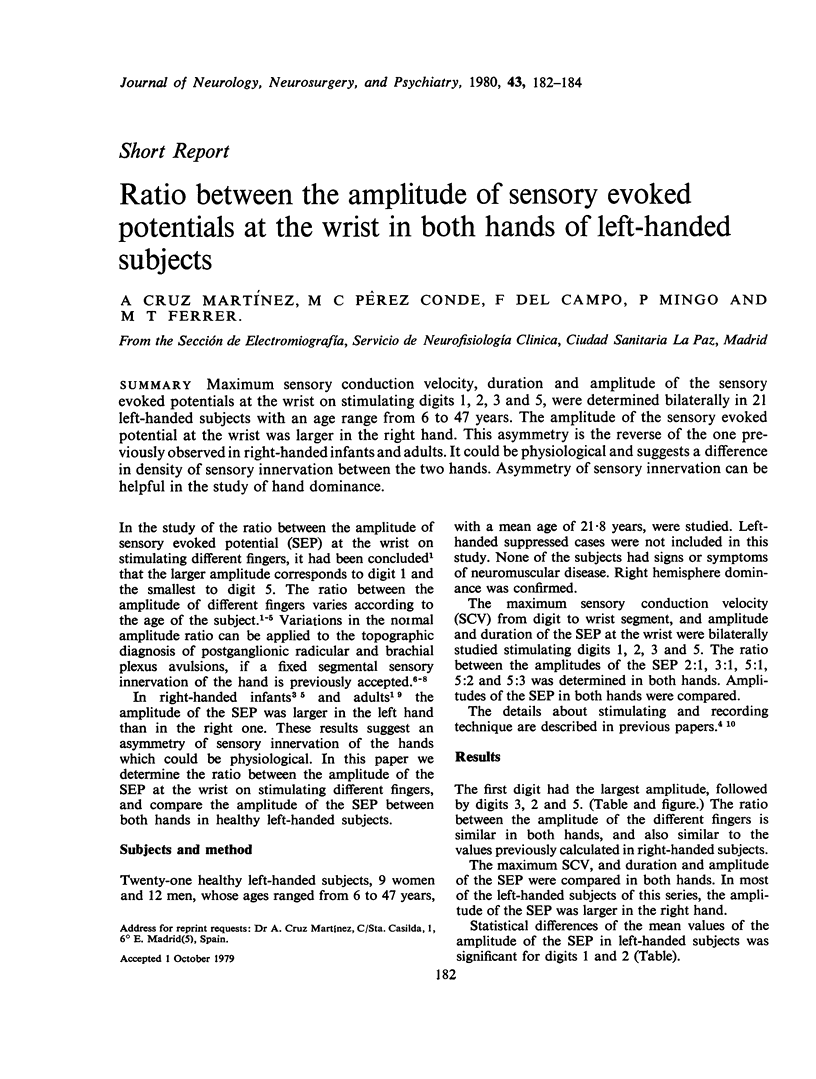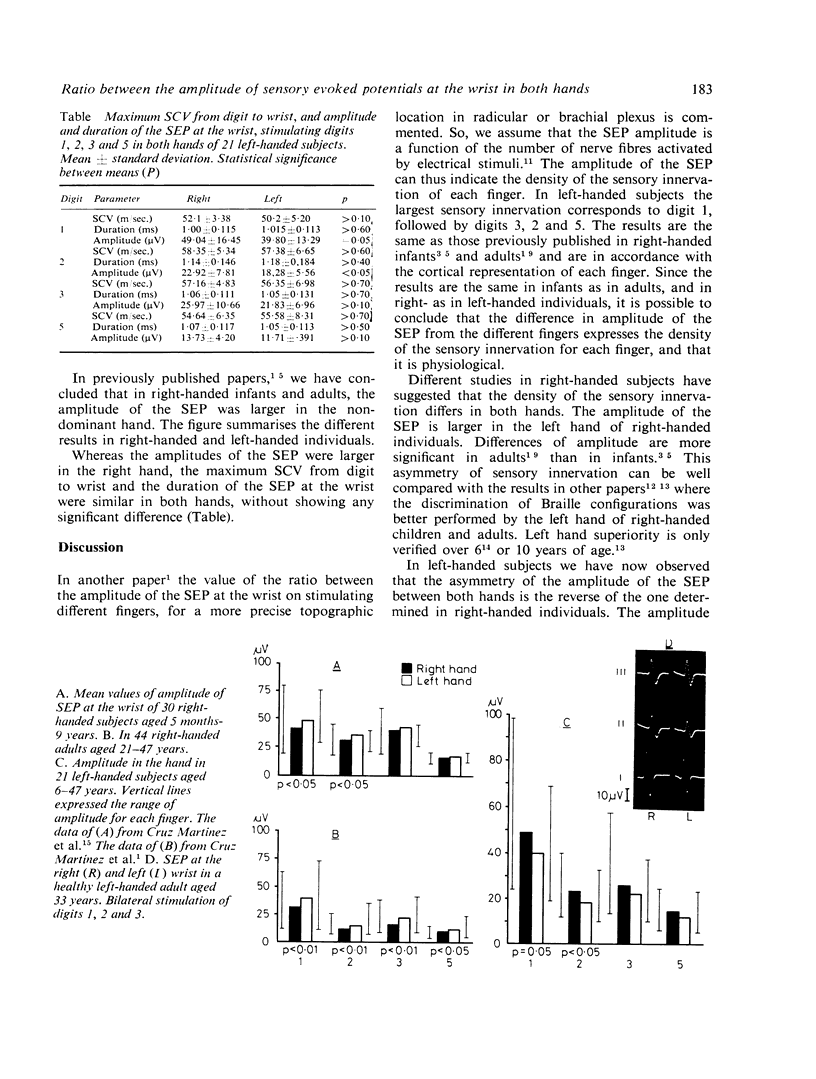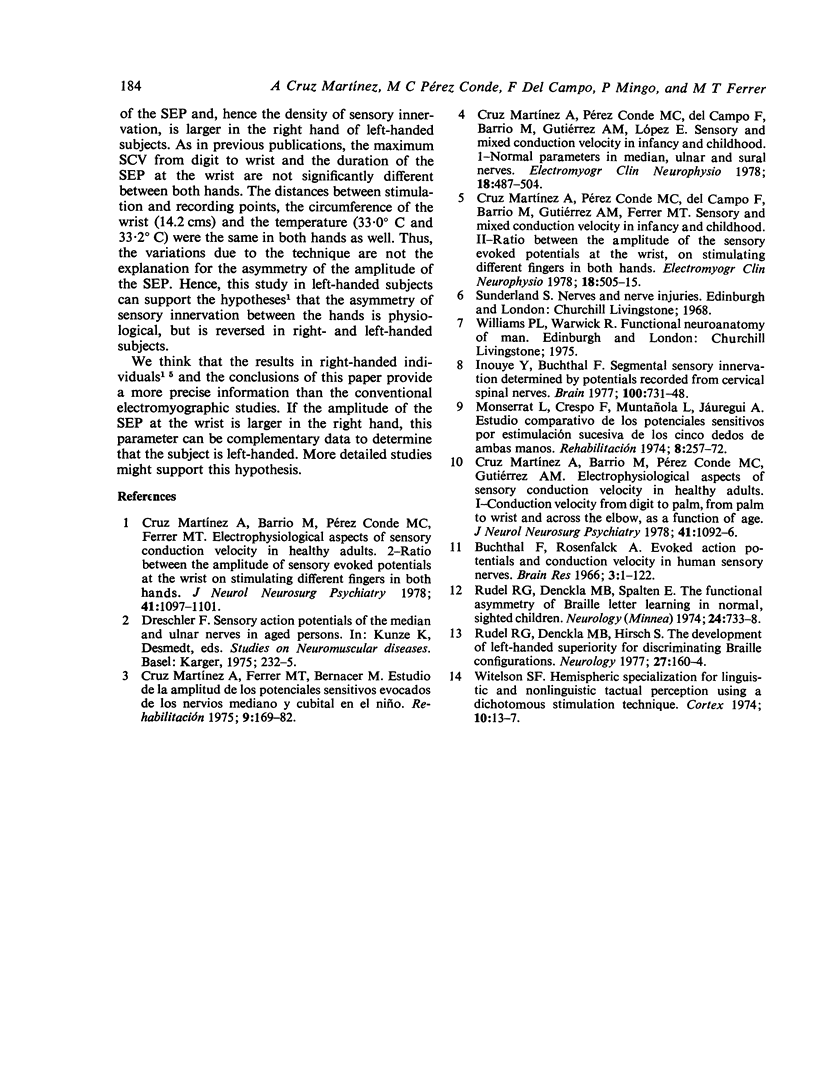Abstract
Maximum sensory conduction velocity, duration and amplitude of the sensory evoked potentials at the wrist on stimulating digits 1, 2, 3 and 5, were determined bilaterally in 21 left-handed subjects with an age range from 6 to 47 years. The amplitude of the sensory evoked potential at the wrist was larger in the right hand. This asymmetry is the reverse of the one previously observed in right-handed infants and adults. It could be physiological and suggests a difference in density of sensory innervation between the two hands. Asymmetry of sensory innervation can be helpful in the study of hand dominance.
Full text
PDF


Selected References
These references are in PubMed. This may not be the complete list of references from this article.
- Cruz Martínez A., Barrio M., Pérez Conde M. C., Ferrer M. T. Electrophysiological aspects of sensory conduction velocity in healthy adults. 2. Ratio between the amplitude of sensory evoked potentials at the wrist on stimulating different fingers in both hands. J Neurol Neurosurg Psychiatry. 1978 Dec;41(12):1097–1101. doi: 10.1136/jnnp.41.12.1097. [DOI] [PMC free article] [PubMed] [Google Scholar]
- Cruz Martínez A., Barrio M., Pérez Conde M. C., Gutiérrez A. M. Electrophysiological aspects of sensory conduction velocity in healthy adults. 1. Conduction velocity from digit to palm, from palm to wrist, and across the elbow, as a function of age. J Neurol Neurosurg Psychiatry. 1978 Dec;41(12):1092–1096. doi: 10.1136/jnnp.41.12.1092. [DOI] [PMC free article] [PubMed] [Google Scholar]
- Inouye Y., Buchthal F. Segmental sensory innervation determined by potentials recorded from cervical spinal nerves. Brain. 1977 Dec;100(4):731–748. doi: 10.1093/brain/100.4.731. [DOI] [PubMed] [Google Scholar]
- Martinez A. C., Perez Conde M. C., del Campo F., Barrio M., Gutierrez A. M., Ferrer M. T. Sensory and mixed conduction velocity in infancy and childhood. II. Ratio between the amplitude of the sensory evoked potentials at the wrist, stimulating the different fingers in both hands. Electromyogr Clin Neurophysiol. 1978 Nov-Dec;18(6):505–515. [PubMed] [Google Scholar]
- Rudel R. G., Denckla M. B., Hirsch S. The development of left-hand superiority for discriminating braille configurations. Neurology. 1977 Feb;27(2):160–164. doi: 10.1212/wnl.27.2.160. [DOI] [PubMed] [Google Scholar]
- Rudel R. G., Denckla M. B., Spalten E. The functional asymmetry of Braille letter learning in normal, sighted children. Neurology. 1974 Aug;24(8):733–738. doi: 10.1212/wnl.24.8.733. [DOI] [PubMed] [Google Scholar]


